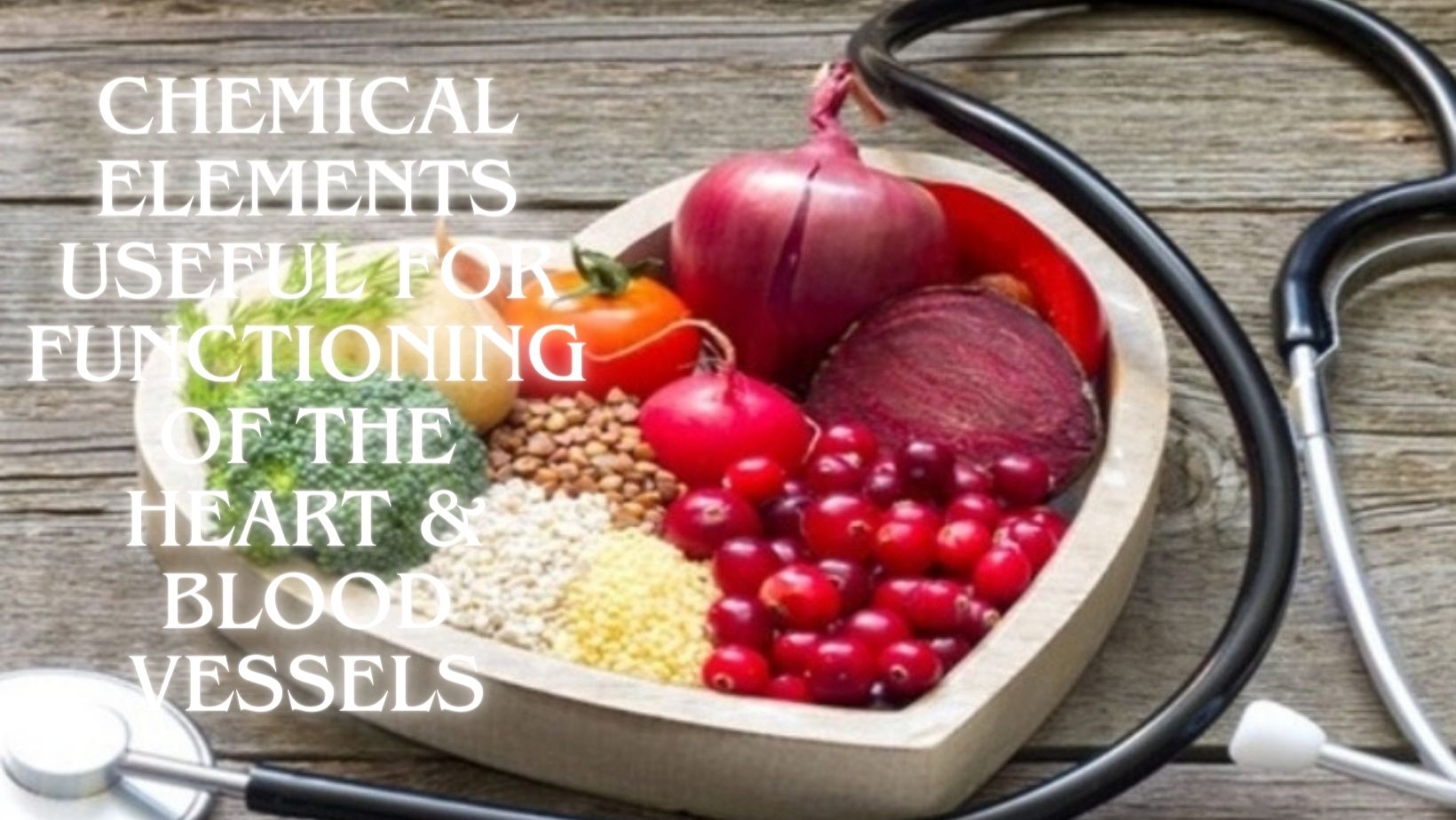Functioning Of The Heart & Blood Vessels
Heart and blood vessels
Medical reports stated that magnesium, zinc and copper are chemical elements that are beneficial for the heart and blood vessels, indicating that these substances provide the correct functioning of the heart and blood vessels.
Magnesium helps maintain the proper functioning of muscles and nerves, maintain a steady heart rate, support the proper functioning of the immune system as well as in building bones.
It also helps control blood sugar levels and maintain healthy blood pressure.
Zinc, a nutrient found throughout the body, helps the immune system and metabolic function. Zinc is also important for wound healing and for the senses of taste and smell.
By eating a varied diet, the body usually gets enough zinc. Food sources of zinc include chicken, red meat, and fortified breakfast cereals.
People use zinc by mouth to help treat the common cold, but it can reduce the effectiveness of some medications and cause side effects.
The recommended daily amount of zinc is 8 milligrams (mg) for women and 11 mg for adult men.
Copper is a trace element that is indispensable for the health of all living things (humans, plants, animals, and microorganisms).
In humans, copper is essential for physiology and metabolism.
The human body has complex homeostatic mechanisms that attempt to ensure a constant supply of copper as available, while flushing out excess copper whenever this occurs. However, like all essential elements and nutrients, dietary ingestion of too much or too little copper can lead to adverse results from too much or too little copper in the body, each with its own set of adverse health effects.
Dietary standards for daily copper intake are set by various health agencies around the world.
Standards adopted by some countries recommend different levels of copper for adults, pregnant women, infants, and children, corresponding to the varying need for copper during different stages of life.
Copper deficiency and toxicity can be of either genetic or non-genetic origin. Studying copper-related genetic diseases, which are a focus of researchers, has shed light on how the human body uses copper, and why it is important as an essential micronutrient.
Studies have also resulted in successful treatments for hereditary copper excess conditions, allowing patients whose lives are at risk as a result to live long and productive lives.
Researchers in the fields of microbiology, toxicology, nutrition, and health risk assessment work together to determine the exact levels of copper that are necessary, while avoiding consuming too much or too little copper.
The results of these studies are expected to be used to refine government dietary recommendations programs designed to help protect public health.

Chemical elements useful for functioning of heart & blood vessels
The reports said that it is important to take magnesium in the event of disorders, such as anxiety, pointing out that the lack of this chemical element in the body seriously affects the health of a person.
She pointed out that zinc plays an important role in the immune system as well as in energy production, noting that this element helps with copper in ensuring the proper functioning of the heart and blood vessels in the body.
Regarding the benefits of vitamin B12 and folic acid for heart health, reports indicated that vitamin B12 helps reduce the risk of cardiovascular disease and atherosclerosis, in addition to contributing to stimulating the immune system, as well as strengthening the nervous system.
You Can Read : lose weight faster
She pointed out that vitamin B12 combines well with folic acid, so doctors always recommend that they should be taken together.
Vitamin B-12 (Cobalamin) has an essential role in red blood cell formation, cell metabolism, neurological function, and the production of DNA, molecules within cells that carry genetic information.
Food sources of vitamin B-12 include poultry, meat, fish, and dairy products.
Vitamin B-12 is also added to some foods, such as in fortified breakfast cereals, and is also available as an oral supplement.
Vitamin B-12 can be prescribed as an injection or nasal spray to treat a vitamin B-12 deficiency.
Vitamin B-12 deficiency is not common in the United States, however, those who follow a vegan diet may be at risk of developing a vitamin B-12 deficiency because plant foods do not contain vitamin B-12.
The elderly and people with gastrointestinal diseases that affect the absorption of nutrients are also at risk of vitamin B-12 deficiency.
Left untreated, vitamin B-12 deficiency can lead to anemia, fatigue, muscle weakness, bowel problems, nerve damage, and mood disorders.
The recommended daily vitamin B-12 dose for adults is 2.4 mcg.
Research on the use of vitamin B-12 for specific conditions and activities states:
Cardiovascular diseases.
Some previous studies have shown that the combination of vitamin B-12, folic acid (vitamin B-9) and vitamin B-6 may have a role in preventing cardiovascular disease by reducing blood levels of an amino acid (homocysteine).
While other studies indicate the ineffectiveness of combining these vitamins in reducing the risk of developing cardiovascular diseases and strokes, or reducing their severity in affected cases.
You Can Read : Lose Weight Faster
dementia Vitamin B-12 deficiency is associated with dementia and a decline in cognitive function, but it is not clear whether vitamin B-12 supplementation can help prevent or treat dementia.
athletic performance.
If you don’t have a vitamin B-12 deficiency, there’s no evidence that vitamin B-12 supplements will boost your energy or improve your athletic performance.
Reports indicated that vitamin B12 combines well with folic acid, so doctors always recommend that they should be taken together.
Reports added that this micronutrient is very important for supporting the methylation reaction, which in turn works on DNA repair and cancer resistance, in addition to playing a major role in mental activity.



